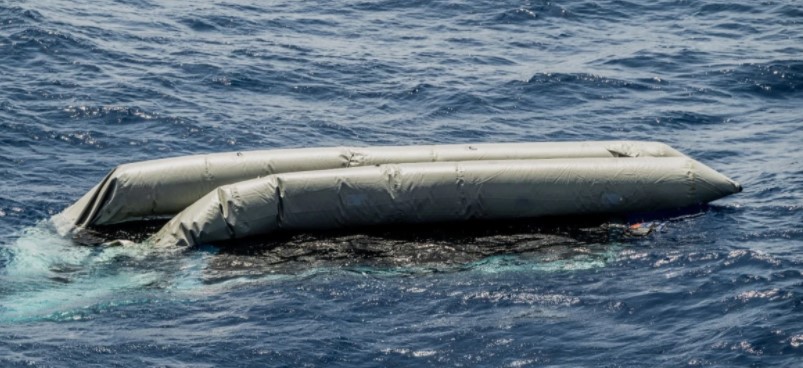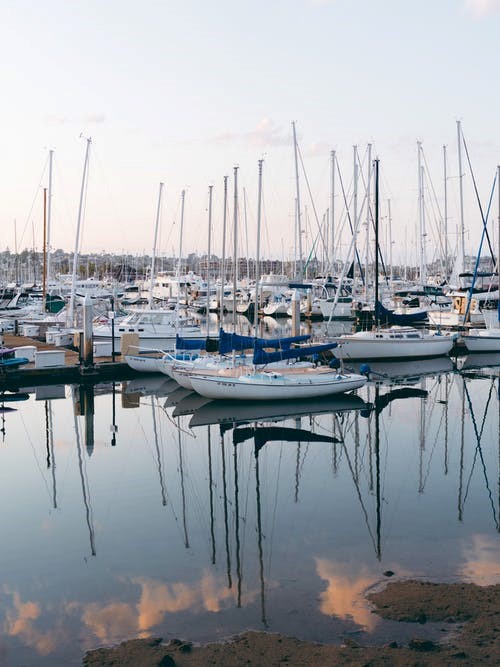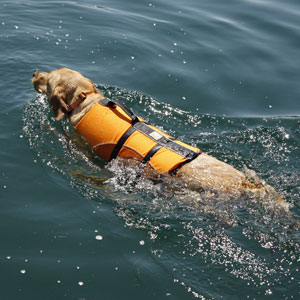
While capsizes do not happen very often, they still pose a major threat to water transportation, so you need to be prepared in case you find yourself in one. What should you do if your boat capsizes? It is best to be prepared beforehand to know what to do if the situation ever arises.
This article provides key information on what you should do if a boat capsizes. First off, let’s look at what can make a boat capsize.
Table of Contents
Why Do Boats Capsize?
To know why boats capsize, let’s first define the term.
A boat is said to capsize when it has completely rolled over or onto its side. Boat capsizes typically happen when the vessel becomes unstable on the water. The instability is caused by one of three major reasons: leaking water, bad weather, and unbalanced weight.
About 10% of capsizes happen to vessels measuring 8ft or less, and the boats do not usually suffer serious damage.
Vessels measuring 15ft to 19ft represent 41% of all capsizes. Boats in this category are usually fishing boats designed with hard to drain cockpits. They are also usually out in terrible weather and overloaded.
Vessels in the 20ft to 24ft range represent just 25% of capsizes, and vessels over 25 feet represent 18% of capsizes.
For more statistics about capsizing and boating accidents in general, visit the U.S. Coast Guard’s accident reports.
Leaks
Leaks are a major concern and reason for capsizing. Sometimes, capsizes happen as a result of simply forgetting to replace the drain plug. At other times, it could be down to leaky fittings.
When water sloshes around at the bottom of the boat, it affects its stability and can allow the waves to flip the boat.
Many older boats are designed with low transom cutouts, putting them at greater risk of flooding. The most likely scenario for flooding is when the boat slows down too quickly, and the stern has excess weight. To reduce this risk, newer boats have been designed to have wells.

Terrible Weather
Another reason for boat capsizes is terrible weather, especially when it combines with other factors.
For the most part, smaller boats can be easily overwhelmed by waves. They can even be capsized by a large wake (a v-shaped wave created by the vessel as it goes through the water), particularly if overloaded.
Something like a sudden squall can flip bigger boats. This is why it is important to check the forecast before going out into the water.
Poor Weight Distribution
Uneven weight distribution is the most common reason for boat capsizes. As earlier mentioned, boats above 15ft to 19ft are more likely to capsize as a result of too many heavy coolers or an extra person aboard.
If a boat has a cockpit drain, all it takes is an extremely large person or another extra cooler to cause the water to flow back up from the drains. This is why it is crucial to pay attention to the number of people allowed on board.
Also, it is important to understand that the maximum seating available on a boat isn’t always an accurate indication of how many people the boat can safely carry. When you exceed the load capacity, you put the boat at an increased risk of capsizing.
How the weight is distributed on the boat is equally important. Having too many people on one side of your boat could force the gunwale to go down too much, and that can cause water to pour in.
This is why boat manufacturers typically include a diagram on every boat, highlighting where people can sit without upsetting the boat’s balance.
Certain boat manufacturers also put labels on the upper decks of larger boats to show how many people can safely stay on the upper decks. This is because the weight is significantly higher than the waterline, which raises the boat’s center of gravity, making the boat slightly unstable and prone to capsizing.
What matters is that you should not be loading too many passengers or cargo in one area of the boat because that can affect its stability even if the entire load is less than the boat’s maximum load limit. Weight has to always be evenly distributed, regardless of the size of the vessel.
What Should You Do If Your Boat Capsizes?
Now that we have seen the various reasons for boat capsize, let’s focus on what you should do when and if your boat does capsize.
The first thing you should do is check with everyone aboard, making sure that nobody is injured. If you are not wearing a PFD or a lifejacket, you should put one on.
Make sure that everyone on board is wearing a life jacket as well. Not only should everyone wear a life jacket, but wearing the proper size life jacket is important. See some of our picks for life jackets in our life jacket reviews. Aside from life jackets, river float tubes can also help you remain secure. Check out some of the best river float tubes.
The next step is to have a headcount to be sure everyone on board is accounted for. Once this is done, it is important to remain with the boat if it is still afloat. This significantly increases your chances of being rescued either by the coast guard or fellow boaters.
Always remember that it is a lot easier for an aircraft to spot an overturned vessel than it is to find people floating around in the sea.
You could also choose to get as many supplies as you can from the boat. These supplies could be a distress signal and additional flotation devices.
If you can, find any floating debris and attach them to your boat to make a larger target so that the search party can find you. You could also choose to put some items in the water to create a debris field. This helps spotters to easily spot your location.
If the boat remains afloat, climbing onto the hull can help reduce water exposure. Keep in mind that water removes body heat 25 times faster than air does. The best way to remain warm and put off hypothermia is to huddle together to create a pool of warmth.
You should also know that swimming to the shore is not a good idea if you are over 100 meters away. It is a lot safer to remain with your party. Remain with the boat and wait for first responders and rescue crews after you send your distress signal.
Conclusion on What Should You do if Your boat Capsizes
It can be easy to feel invincible when out in the vast ocean on a boat. However, it is still important that you pay attention to not only your safety but the safety of others in your party. This is especially true when the chances of capsizing are apparent.
Having too much weight can significantly affect a boat’s stability. Always check for any leaks before venturing out to sea. Also, you must pay attention to the weather when heading out to avoid a capsized boat incident or another kind of boating accident. You want to avoid going out in severe weather or rough water.
If you face disaster on rough seas, remember to go along with the procedures outlined in this short guide. Putting on a life jacket, if you haven’t already, is important. All floatation devices and life jackets should be salvaged from the boat before any other step is taken. Doing so can help increase your visibility and chances of a safe rescue.


